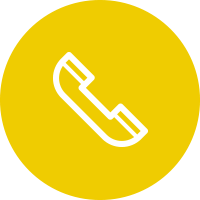
Today, let's talk about why conversion can be hard for people with ADHD and some hacks to improve communication if you have ADHD.
For starters, ADHD affects the way a person processes information and communicates with others. It can be difficult to stay focused on one topic or to communicate in a straightforward way. Getting distracted can also lead to missed details, losing track of the conversation topic and missed social cues. Sometimes, the lightning-fast ADHD brain will introduce a new conversation topic that too others seems out of context, but for you makes perfect sense. In addition, the struggle with managing emotions combined with impulsivity can cause many people with ADHD interrupt, overshare, or talk excessively which can lead to misunderstandings or communication breakdowns.
So, what can you do to improve your communication skills despite your ADHD? Here are a few hacks that might help:

1. Slow down – If you're someone who tends to speak quickly or impulsively, try taking a moment to slow down and gather your thoughts before communicating. Practice taking deep breath and exhaling slowly. Adopting a mindfulness practice can also help you learn to slow down and be more present in the moment. This can help you communicate more clearly and can reduce the likelihood of misunderstandings.
2. Practice active listening – People with ADHD can sometimes struggle with listening to others, so it's important to make a conscious effort to actively listen when someone is speaking to you. This means really focusing on what the person is saying and trying to understand their point of view. Making eye contact can help improve your focus and ability to read social cues. Keeping your hands busy with a fidget toy, doodling, or even a pen is also an excellent strategy to enhance focus.
3. Use visual aids – Sometimes, it can be helpful to use visual aids to communicate your thoughts or ideas. This could be something as simple as drawing a picture or using a diagram to illustrate a concept.

4. Ask questions – If you're unsure about something or need clarification, don't be afraid to ask questions. This can help you better understand what someone is saying and can also help to prevent misunderstandings.
5. Jot it down – Don’t rely on your blinky working memory. Wherever possible, externalize it. Take notes in work meetings, write down that shopping list, or your errands. Whether it’s written on your phone or with pen and paper is irrelevant, the important thing is that you take pressure off your overtaxed brain and create a reliable place to reference the information when you need it.

6. Set your intention and mentally rehearse – Before you enter a conversation, especially a more crucial one, think about how you want to show up in the situation. For example, if you have a history of interrupting or overtalking in work meetings, perhaps you would like to be viewed as an expert in your field, who only contributes when they have something valuable to share. If you tend to zone out during conversations with your friends and want to be seen as a more caring, compassionate, good listener. Now, mentally rehearse and imagine the conversation as you’d like to be. From our brain’s perspective creative visualization is identical to real life and research supports that it works.
7. Use humor – Sometimes, a little bit of humor can go a long way in improving communication. If you find yourself getting frustrated or overwhelmed during a conversation, try injecting a little bit of humor into the situation to diffuse any tension.
In conclusion, while communication can be challenging for people with ADHD, there are hacks and strategies that can be implemented to improve communication skills. By slowing down, actively listening, using visual aids, asking questions, and injecting humor, you can overcome communication barriers and effectively communicate with others.


